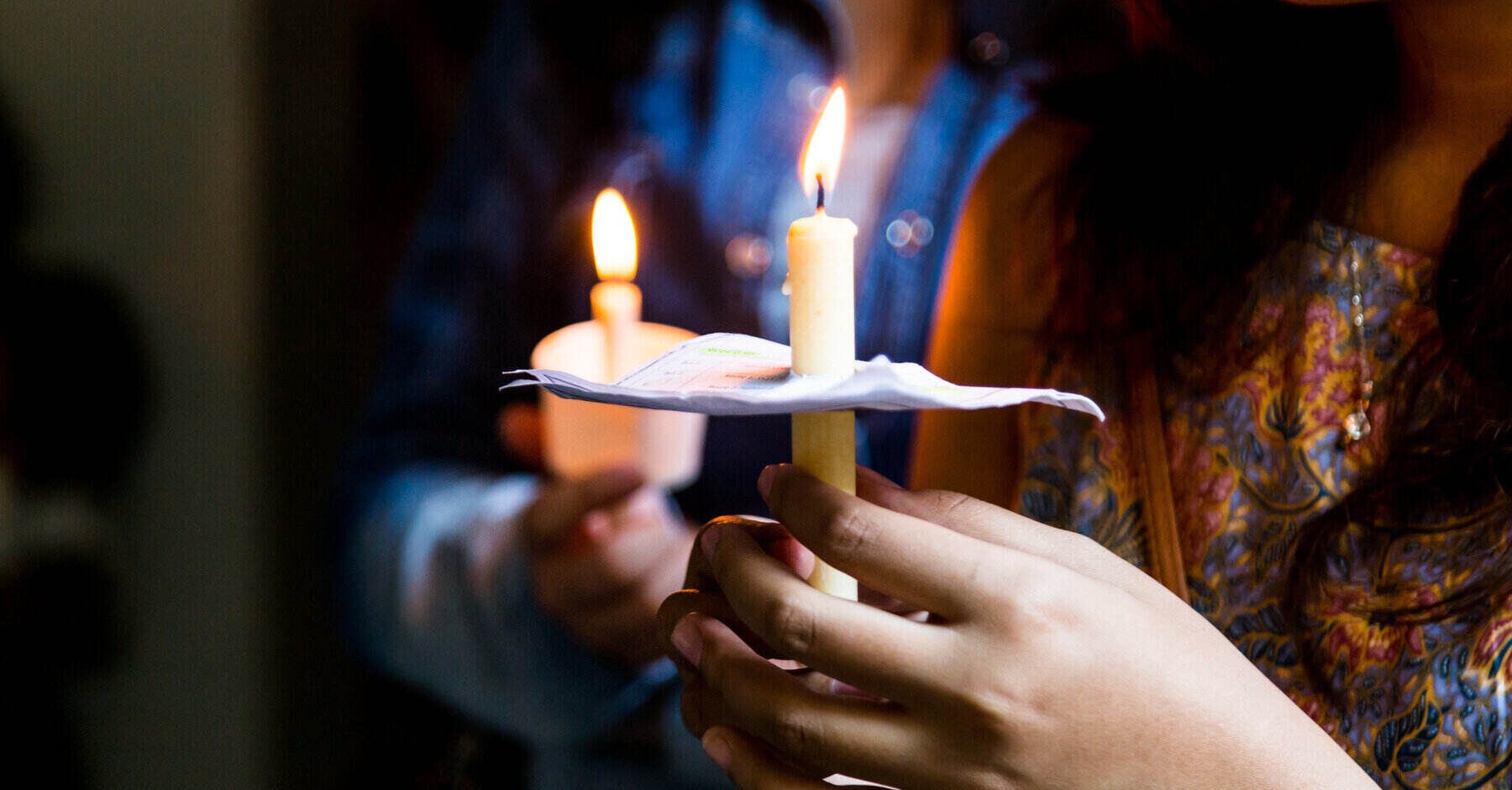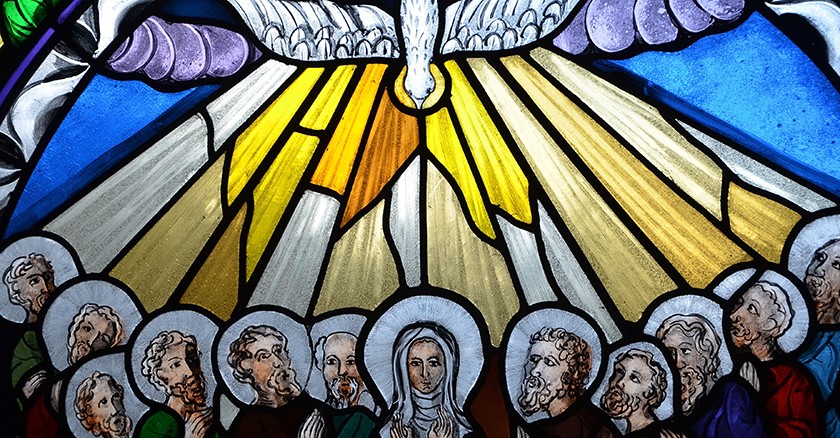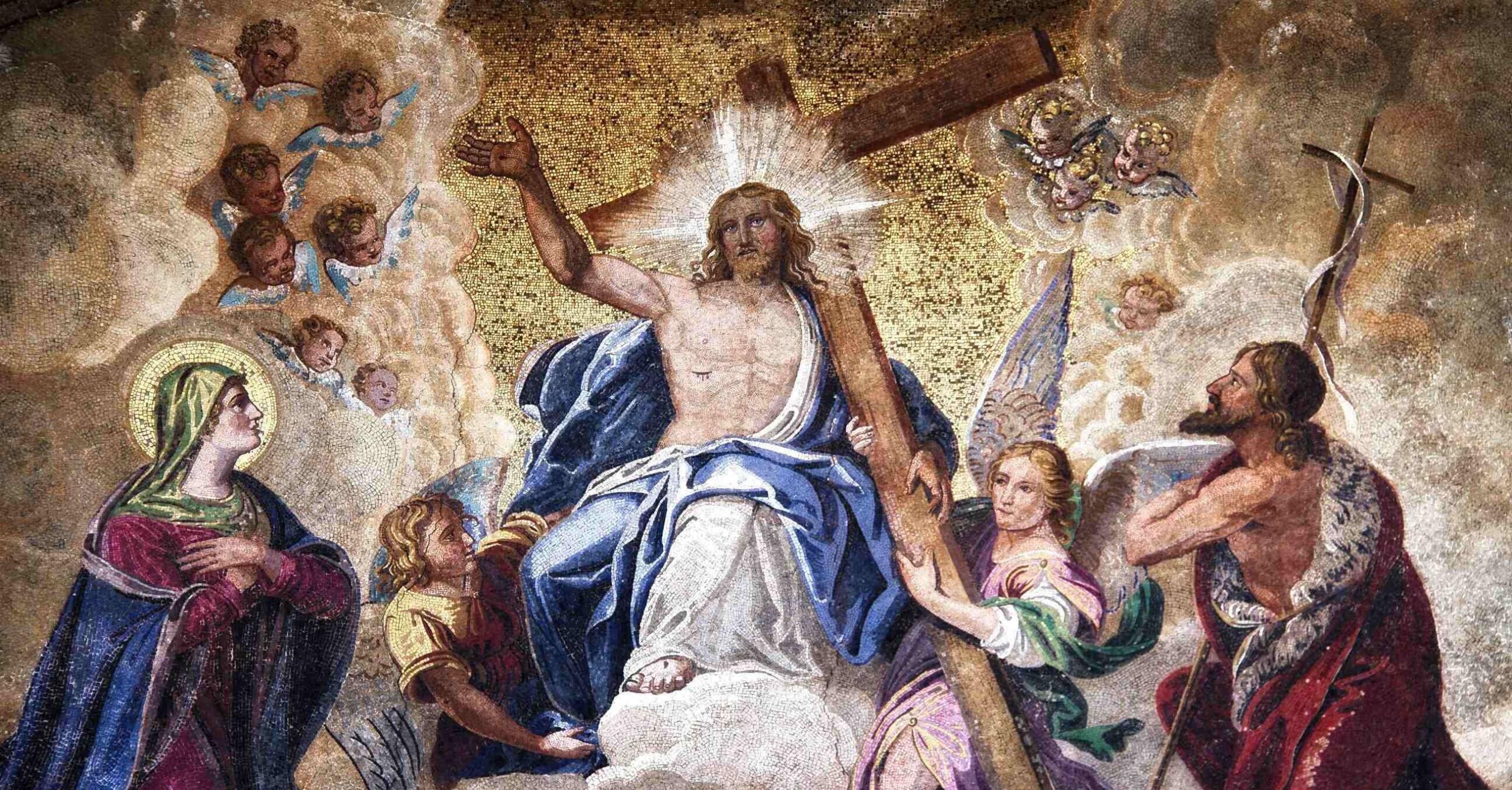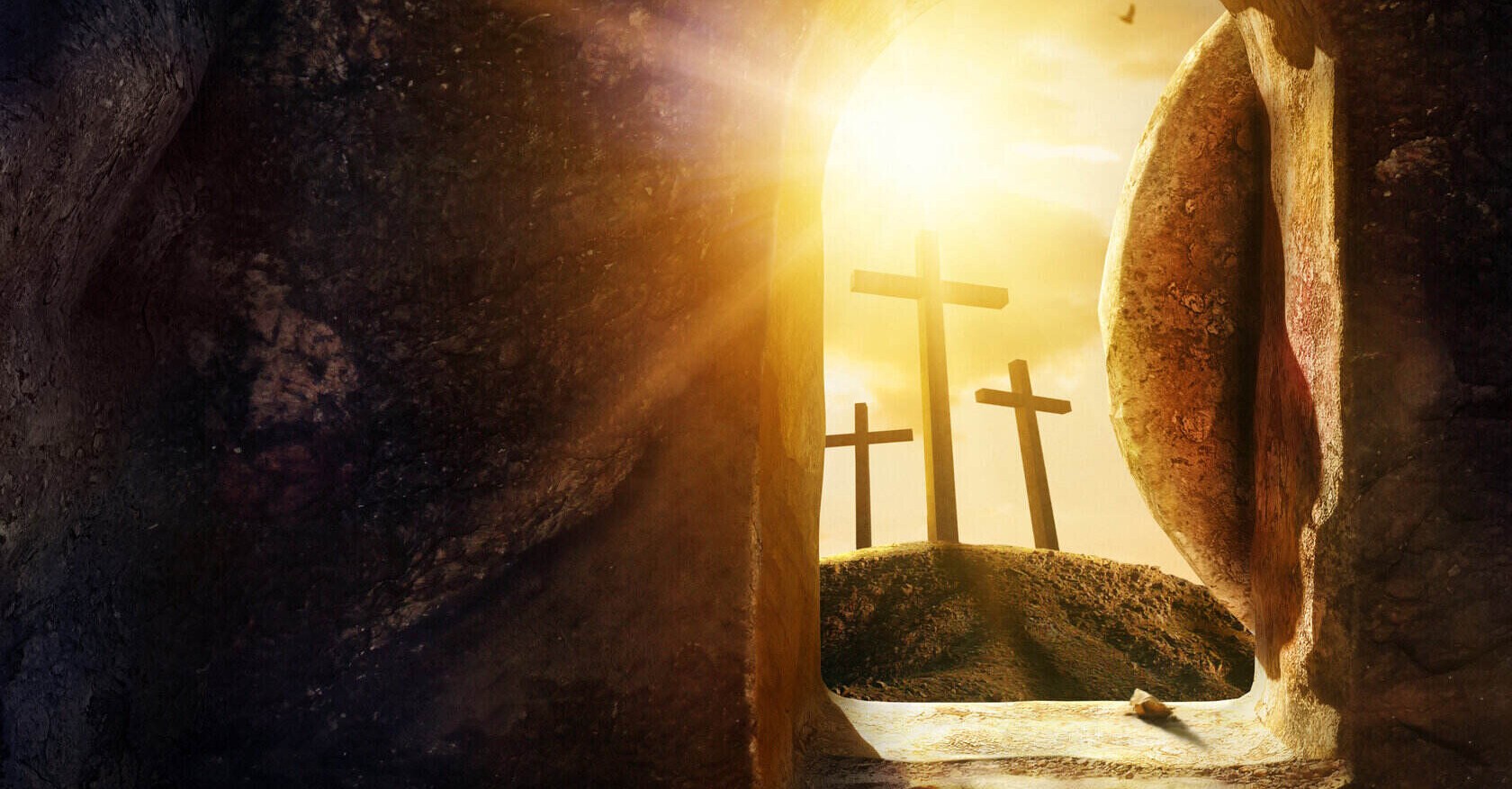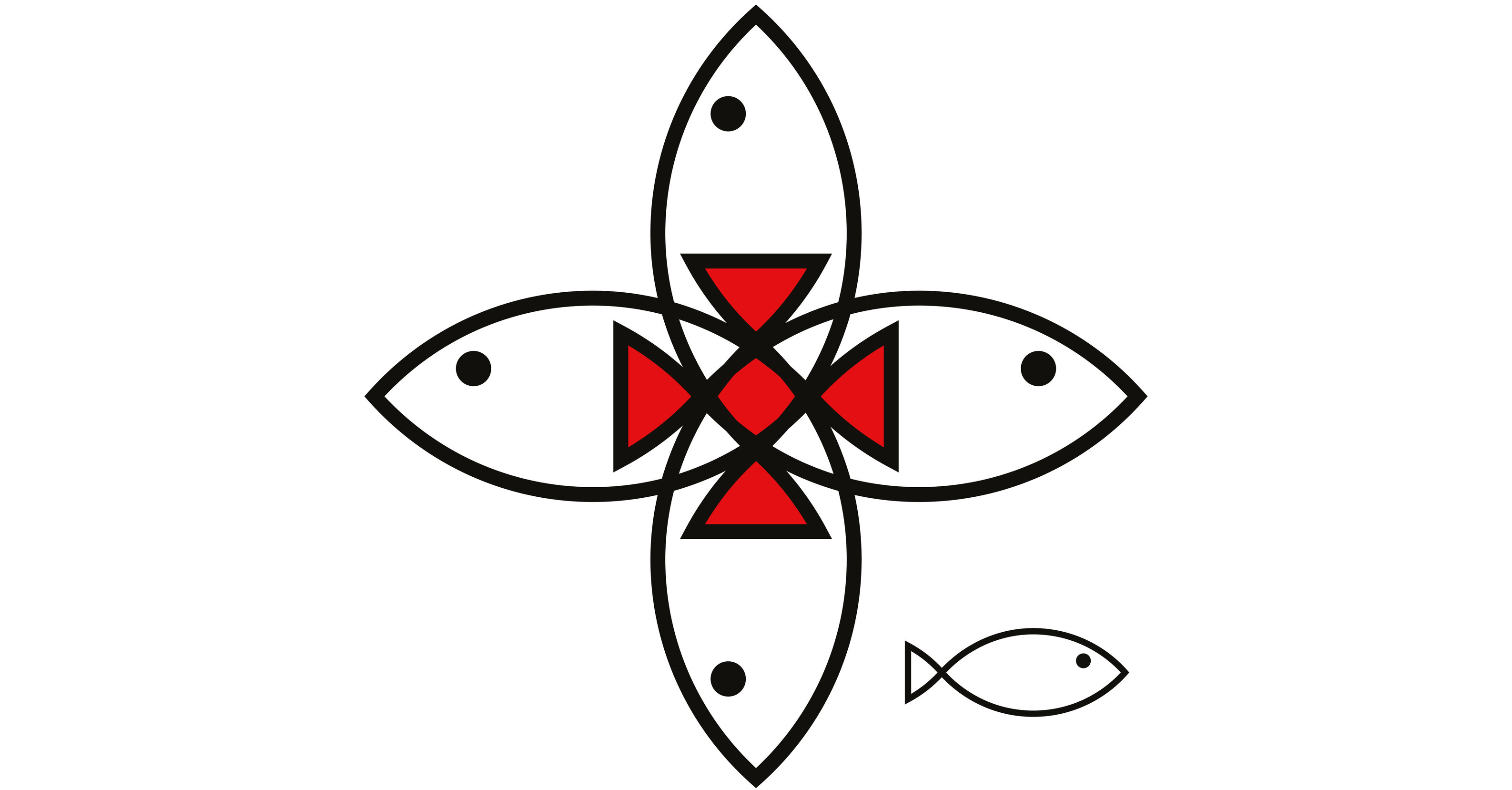3rd Sunday of Easter, 1 May 2022

Some people ask, “Where is God?” in the midst of wars and disasters. Jesus is with those who are suffering, although sometimes we are not aware of it. God never leaves or forsakes us, particularly in times of difficulties. We’re thankful that in the midst of all this we can proclaim Christ’s resurrection, which gives us hope. The world desperately needs the peace God promised, which humans cannot manufacture.
As Eve was made from the side of Adam, when Jesus’ side was pierced there flowed water and blood: the Sacraments of Baptism and Holy Eucharist. Subsequently, the Church is the embodiment and the depository of the very life of God in the midst of this existence:
“…the light of the knowledge of the glory of God in the face of Jesus Christ [is]
treasure in earthen vessels.”[1]
The Church is the New Eve and the New Jerusalem.
Jesus reveals Himself in unique and specific ways
In today’s Gospel, Jesus appears to His disciples for the third time. John the Evangelist said,
“He showed Himself in this way”:[2]
Jesus revealed Himself to His disciples in a unique and specific manner. The disciples had returned to their trade, fishing all night and catching nothing. At daybreak, Jesus told them to cast their net on the other side of the boat, and they received a great catch. This was a déjà-vu incident, something that had happened before.[3]
Two sides of the Church
Several disciples were present, but John was the first to recognize Jesus. Scott Hahn contrasts the personalities of John and Peter, both of whom were very close to Jesus. He describes John as the contemplative, while Peter is the disciple of office and action (and, form a Roman Catholic perspective, hierarchy). He paints a picture of these two sides of the Church.
- In 595, Pope Gregory the Great sent Augustine of Canterbury, Prior of Saint Andrew’s monastery in Rome, with forty others to evangelize the Anglo-Saxons.
- In the 14th century, Saint Catherine of Siena, a mystic in the Dominican Order concerned with the unity and welfare of the Church, persuaded Pope Gregory XI to return to Rome from Avignon, and tried to heal the Great Schism of the West.
- Saint Teresa of ávila, a Carmelite nun, a mystic, religious reformer, author and theologian of the contemplative life and mental prayer, was later declared a Doctor of the Church. She was active during the Catholic Reformation and reformed the declining Carmelite orders; the movement she initiated was later joined by John of the Cross.
We might be surprised that those in monasteries evangelized the world. Thomas Cahill’s book, How the Irish saved civilization relates how, when the Roman Empire crumbled, the Western educational system was established through the writings of the monastics.
Be careful you don’t fall
Jesus made a charcoal fire and ate a meal with His disciples. This reminded Peter of the occasion when he had denied Jesus three times in the courtyard by a charcoal fire. He had adamantly told Jesus, “I will never deny You”, and in the garden of Gethsemane he violently attacked those who came to arrest Him. Peter’s embarrassment, as the chief of the twelve disciples, is narrated in all four Gospels, engraved forever in the Church’s memory, and we read it repeatedly. If Peter, who walked and ministered with the Lord and saw miracles – the opening of blind eyes, the raising of Lazarus from the dead – could one day deny Him, you and I could also deny Jesus at any time. In a sense, Peter embodies all of us. We go to church, sing “Hallelujah”, proclaim the Creed and our allegiance to Jesus Christ; but in daily life we have to battle for our faith – there are many things that can draw us away, and temptations to deny our Lord on an everyday basis. Patrick Reardon said,
“Peter was neither the first man, nor the last, to confuse human excitement and divine strength, nor to mistake the pumping of adrenaline for the divine grace of God.”
Sometimes we become excited when we praise God and He answers our prayers, but often it is short-lived. Paul said,
“Let him who thinks he stands take heed lest he fall.”[4]
Any of us could fall like Peter.
Forgiveness and repentance are available
As long as a Christian is alive, repentance and forgiveness are available to us as life options. If you don’t like someone, and try to forget that person, but then one day you see them again, all the memories come rushing back, and you try to avoid them. When Peter saw the charcoal Jesus had prepared, he didn’t want to be reminded. Peter may have expected Jesus to chastise him, but God doesn’t keep count of our sins. Instead, Jesus looked him in the eyes, and said, “Do you love Me?”, and then, “Feed My sheep.” Peter had denied Jesus three times, and three times Jesus gave him the opportunity to be restored and to turn to Him again. Until our last breath in this life, whatever sin you have committed, God is open to anyone who repents. The first who went to Paradise was a thief who was crucified with Christ. We all sin and make mistakes, but repentance and forgiveness are always available. We see the contrast between Peter’s repentance and Judas’ despair.
The source of forgiveness
Saul of Tarsus was a murderer and a persecutor of the Church, but he received forgiveness and knew the resurrected Jesus. Simon Peter walked with Jesus, yet did not really know Him as he should have. The reason why we are Christians and we live in Christ is that He wants us to know Him in His resurrection; and we will see Him because we have been made like Him. I come to church because there is forgiveness in the Church. Sadly, the Church sometimes condemns the world – that’s a mistake. God does not condemn the world – He loves the world, not because He agrees with our sin but because He loves the sinner; He died for you and me. We can thank the Lord that despite our sins and mistakes He never gives up on us. God is the Source of forgiveness, and only those who know His forgiveness are able to extend it to others.
When you love God, you don’t want to sin against Him, but you fight against sin. If you fall, there’s a God who loves you and forgives you, but we have to receive His forgiveness by humbling ourselves before Him.
Study questions:
- Where is God in the midst of war, disaster, and suffering?
- Why does God reveal Himself to us in “unique and specific” ways, and why was this particularly important for Jesus’ disciples after His resurrection? How have you experienced this personally?
- What is the importance and relationship of contemplation and action in the life of the Church, and in your life? How do you recognize Jesus?
- Jesus used the miraculous catch of fish and the charcoal fire to remind the disciples, especially Peter, of past events. In what ways did this affect them, and how did they respond?
- How do memories (whether pleasant or painful) play a part in your emotional and spiritual life and your walk with God? How do you respond when you encounter them?
- In what ways are we tempted to deny Jesus? How can we avoid doing so?
- Have you ever made decisions (especially to follow and serve Jesus in a particular way) because of human excitement rather than surrender to the leading of the Holy Spirit? What were the results, and what have you learned from this?
- What is God’s attitude towards us when we sin and make mistakes? What are the consequences for our relationship with Him and our service to Him?
[1] II Corinthians 4:6-7, NKJV
[2] John 21:1, NRSV
[3] Luke 5:1-11
[4] I Corinthians 10:12, NKJV



